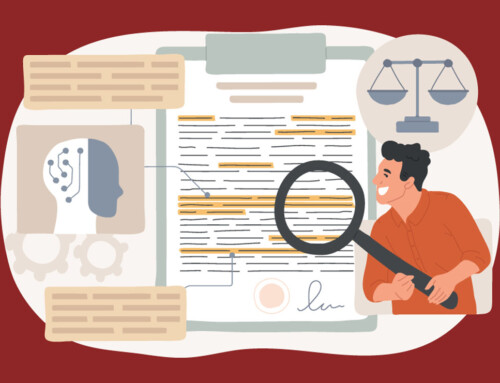Contents
Introduction
In today’s fast-paced legal environment, the ability to manage documents efficiently is not just a convenience—it’s a necessity. For law firms, the stakes are particularly high. Effective law document management directly impacts productivity, security, and ultimately, the success of the firm. With the increasing volume of sensitive information that law firms handle daily, optimizing document management processes is more important than ever. This blog post explores strategies for modern law firms to enhance their Legal Document Management Systems (DMS), ensuring they can meet the demands of the current legal landscape with confidence. Explore how RunSensible’s legal case management software can revolutionize your document management strategies, making your practice more efficient and secure.
Understanding Legal Document Management
Legal document management is the systematic approach to managing, storing, and securing documents within a law firm. In the context of today’s legal industry, it plays a pivotal role in a firm’s operational efficiency and information security. According to the National Law Review, effective document management not only streamlines workflows and reduces the time spent on administrative tasks but also fortifies a firm’s defenses against data breaches and compliance violations. The essence of legal document management lies in its capacity to organize vast amounts of data in a way that is accessible, secure, and conducive to a firm’s productivity.
Incorporating a robust legal document management system is imperative for law firms aiming to navigate the complexities of modern legal work. It goes beyond mere document storage; it encompasses the entirety of a document’s lifecycle—from creation to disposal. Efficient management systems ensure that documents are easily retrievable, up-to-date, and secure from unauthorized access, which in turn, supports Compliance with Legal Standards and client confidentiality requirements.
As the legal landscape continues to evolve, so does the importance of leveraging technology to manage documents effectively. RunSensible’s legal case management software emerges as a comprehensive solution, designed to meet the unique demands of legal document management. By integrating advanced features tailored for legal workflows, RunSensible assists law firms in enhancing their productivity and ensuring the security of their information.
Best Practices for Legal Document Management
Optimizing legal document management requires adherence to best practices that safeguard sensitive information, ensure compliance, and enhance operational efficiency. Law firms can significantly benefit from implementing these strategies:
Be Strict with Access and Editing Rights
One of the foundational elements of securing legal documents is controlling who can view and edit them. As highlighted by Filestage.io, strict access controls are essential for protecting sensitive information from unauthorized access. Implementing role-based access rights ensures that only authorized personnel can access specific documents, reducing the risk of data breaches and maintaining client confidentiality.
Drawing Clear Lines Between Versions
Effective version control is crucial for maintaining the integrity of legal documents. It prevents confusion over the most current version and ensures that unauthorized changes are easily spotted. According to Filestage.io, clear versioning policies and tools help law firms manage the lifecycle of documents, from drafts to final versions, ensuring accuracy and consistency across all legal documents.
Keeping an Audit Trail
Maintaining an audit trail of who accessed and edited a document and when is vital for accountability and compliance. It not only helps in tracking the evolution of a document but also provides a defense mechanism against legal disputes. Audit trails allow law firms to demonstrate due diligence and adherence to legal and regulatory requirements, reinforcing the firm’s credibility and trustworthiness.
Avoiding Common Implementation Mistakes
Accurate Data Entry is important in any field of business. Successful implementation of a legal document management system hinges on recognizing and avoiding common pitfalls. LexWorkplace points out that law firms often overlook critical aspects such as scalability, security features, proper training, and data migration challenges. To avoid these issues, law firms should prioritize scalable solutions like RunSensible that offer robust security features, comprehensive training resources, and support for seamless data migration, ensuring a smooth transition to a more efficient document management system.
By incorporating these best practices into their document management strategies, law firms can significantly enhance their efficiency, security, and overall effectiveness in managing the vast amounts of information they handle daily. RunSensible’s legal case management software provides the tools and features necessary to implement these practices effectively, supporting law firms in their quest for optimal document management.
Implementing a Legal Document System
The process of implementing a legal document management system (DMS) is critical to its success and requires careful planning and execution. Here’s a step-by-step guide tailored to ensure law firms can maximize the benefits of their DMS:
- Needs Assessment: Begin with a comprehensive evaluation of your firm’s current document management needs and challenges. Identify what’s working, what isn’t, and what features are necessary for your firm’s unique workflow and case types.
- Planning: Based on the needs assessment, develop a detailed plan for the DMS implementation. This plan should outline the project timeline, budget, key stakeholders, and training requirements. It’s crucial to set clear objectives and metrics for success.
- Choosing the Right Software: Select a DMS that aligns with the firm’s specific needs, considering factors like scalability, security, ease of use, and integration capabilities. RunSensible’s legal case management software, with its comprehensive features tailored for legal workflows, can be an excellent choice for firms looking to enhance their document management processes.
- Data Migration: Carefully plan and execute the migration of existing documents to the new system. This step may involve converting documents to compatible formats, organizing files, and tagging documents for easy retrieval. Ensure data integrity and security throughout this process.
- Training and Support: Provide comprehensive training for all users to ensure they are comfortable and proficient with the new system. RunSensible offers detailed training resources and support to facilitate this transition, ensuring your team can make the most out of the DMS from day one.
- Implementation: Roll out the DMS, starting with a pilot program if possible, to iron out any issues before full-scale implementation. Monitor the process closely, providing support and making adjustments as necessary.
- Continuous Evaluation and Customization: After implementation, regularly review the system’s performance against the set objectives. Solicit feedback from users and make necessary customizations to workflows, features, or access controls to better suit your firm’s needs.
- Legal Workflow Integration: Ensure the DMS is fully integrated into your legal workflows, automating as many processes as possible to save time and reduce the risk of errors. Customization features in RunSensible allow you to tailor the system to fit your specific legal processes and client management strategies.
- Ongoing Training and Updates: The Legal Technology landscape is constantly evolving. Keep your team updated with regular training on new features and best practices to ensure your firm remains at the forefront of efficient document management.
By following these steps and leveraging a comprehensive solution like RunSensible, law firms can implement a DMS that not only enhances document management efficiency but also supports broader operational and strategic goals.
Leveraging Technology for Enhanced Collaboration
In the realm of legal document management, the power of technology to facilitate enhanced collaboration cannot be overstated. Collaborative tools are revolutionizing the way legal documents are drafted, reviewed, and finalized, offering unprecedented levels of efficiency, accuracy, and security. These advancements are particularly crucial in today’s legal practices where teamwork and client involvement are key to achieving optimal outcomes.
1. Streamlining the Drafting Process
Legal document collaboration tools enable multiple contributors to work on documents simultaneously, streamlining the drafting process significantly. This real-time collaboration reduces the time spent on back-and-forth communications and iterations, accelerating the pace at which documents are prepared and finalized. Tools integrated within RunSensible’s legal case management software, for example, provide a seamless platform for drafting, with features that allow for comments, suggestions, and direct edits by authorized team members.
2. Reducing Risks and Improving Accuracy
The collaborative nature of these tools also plays a significant role in minimizing errors and inconsistencies in legal documents. With multiple eyes reviewing the content in real-time, the likelihood of overlooking mistakes is greatly reduced. Additionally, version control features ensure that everyone is working on the latest version of a document, thereby eliminating confusion and maintaining document integrity. This level of precision is critical in legal work, where the accuracy of documents can have significant legal implications.
3. Enhancing Security and Compliance
Modern collaboration tools are designed with security at their core, ensuring that sensitive legal documents are protected throughout the drafting and review process. Access controls, encryption, and audit trails are just a few of the security features that safeguard against unauthorized access and data breaches. Furthermore, these tools support compliance with legal standards and client confidentiality agreements, providing peace of mind for both the firm and its clients.
4. Facilitating Client Involvement
Incorporating clients into the document review process has become easier and more secure with these technologies. Clients can provide input and feedback directly within the document, enhancing the client-lawyer relationship and ensuring that final documents align closely with client expectations and legal requirements.
RunSensible’s legal case management software embodies these collaborative principles, offering a comprehensive suite of tools designed to enhance the document management process. By leveraging these technologies, law firms can not only improve the efficiency and accuracy of their document workflows but also foster a more collaborative and client-focused practice.
Conclusion: The Future of Legal Document Management
The landscape of legal document management is evolving rapidly, with technology playing a pivotal role in shaping the future of legal practices. As law firms continue to seek ways to enhance efficiency, security, and collaboration, the integration of advanced document management solutions becomes increasingly crucial. The adoption of such technologies not only streamlines operational workflows but also significantly improves the quality of legal services provided to clients.
In this era of digital transformation, the potential for law document management systems to revolutionize the industry is immense. From artificial intelligence (like ChatGPT) and machine learning algorithms that can predict document relevance and automate categorization, to blockchain technology ensuring unparalleled security and veracity of legal documents, the possibilities are vast. These innovations promise to further enhance the capabilities of legal practices, making document management more efficient, secure, and responsive to the needs of both lawyers and their clients.
RunSensible’s legal case management software is at the forefront of this transformation, offering a suite of tools that cater to the modern demands of legal document management. By providing solutions that facilitate easier access to documents, secure storage, and collaborative workflows, RunSensible is helping law firms to navigate the challenges of today’s legal environment more effectively.
The future of legal document management lies in the adoption of these technological advancements, which will continue to drive improvements in how legal practices operate. As we look forward, it is clear that the ability to adapt and embrace new technologies will be a key determinant of success for law firms worldwide.
As the legal industry progresses, it’s imperative for law firms to evaluate their current document management practices and consider the benefits of integrating advanced solutions like RunSensible. With its comprehensive legal case management software and CRM solutions, RunSensible is equipped to help your firm streamline its legal document management processes, enhancing both efficiency and security. Embrace the future of legal practice by adopting RunSensible’s innovative solutions today, ensuring your firm remains competitive in the rapidly evolving legal landscape.
FAQs
1. What makes RunSensible’s legal case management software different from other document management systems?
RunSensible stands out due to its comprehensive integration of legal case management functionalities with document management systems, specifically tailored for law firms. It offers a unique blend of features including secure document storage, advanced search capabilities, version control, real-time collaboration tools, and seamless integration with other critical legal software. This holistic approach ensures law firms can manage their cases and documents within a single, user-friendly platform, enhancing productivity and ensuring data security.
2. How does RunSensible ensure the security of legal documents?
RunSensible prioritizes the security of legal documents through several advanced features. These include end-to-end encryption for data at rest and in transit, role-based access controls to ensure only authorized personnel can access sensitive information, and comprehensive audit trails that track document access and changes. Additionally, RunSensible complies with industry-standard security protocols and regulations, providing law firms with peace of mind regarding the protection of their confidential data.
3. Can RunSensible’s software integrate with existing tools used by my law firm?
Yes, RunSensible is designed with compatibility in mind, offering robust integration capabilities with a wide range of tools and software commonly used in legal practices. This includes email platforms, calendar apps, billing and accounting software, and other legal tech tools. The aim is to streamline workflows and reduce the need for multiple disparate systems, thereby increasing efficiency and reducing the likelihood of errors. RunSensible’s flexible API and support team ensure a smooth integration process, tailored to meet the specific needs of your law firm.
Disclaimer: The content provided on this blog is for informational purposes only and does not constitute legal, financial, or professional advice.








